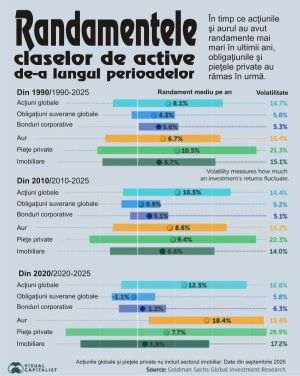According to a recent report by the European Commission on the application of competition rules, the pharmaceutical industry is under intense scrutiny, aimed at ensuring access to innovative and affordable medicines, the websites mondaq.com and hengeler-news.com announce. Following the checks carried out by European officials, the cited sources state that several companies have been sanctioned and a series of anticompetitive practices have been discovered, marking significant progress in the application of competition rules.
A recent case is that of the company Teva, sanctioned by the European Commission with a fine of 462.6 million euros for two abuses of a dominant position. Teva was accused of manipulating the patent system for the drug Copaxone, by withdrawing and renewing divisional patents in order to create legal uncertainty and delay the entry of competitors into the market. In addition, Teva was sanctioned for a campaign to systematically discredit a rival product, spreading false information about its safety and efficacy. The Commission's decision in this case brings important clarifications on the abusive use of patents and the limits of external communication by pharmaceutical companies. Unlike the Vifor case, where a reputation-restoration campaign resolved the conflict, Teva was found guilty of a continuous violation of antitrust rules.
The sources cited also show that last year the European Commission also investigated the first cartel case in the pharmaceutical sector, sanctioning six companies for coordinating the prices of an active ingredient used in digestive treatments. The investigations continued in 2024, and the company Alchem is accused of engaging in the same anticompetitive behavior. The final results of the investigation could influence the way hybrid cases in this sector are handled.
At the same time, "pay-for-delay" agreements continue to be a focal point of the application of antitrust law at European level. The agreements in question involve agreements between pharmaceutical companies to delay the market entry of generic medicines, thereby reducing competition. The Servier case, examined by the Court of Justice of the European Union (CJEU), reaffirmed the strict approach to such arrangements. The Court ruled that transfers of value between companies can be considered restrictive of competition, depending on the economic context and the impact on the market.
As can be seen, the pharmaceutical sector remains under close antitrust scrutiny, and companies must adapt their strategies to avoid sanctions. From the use of patents to mergers and communication campaigns, all aspects of the activity are analyzed to prevent anticompetitive practices.










































1. even other politics
(message sent by okman on 04.12.2024, 14:51)
The guys in the kitchen they do politics and so all scandals and saying Georgescu push RO to RU in n ow unproved accusation and so how non true stories count on broker's thinkin' they sabotate Romania's economy on purpose(assuming are not on drugs,specialists)